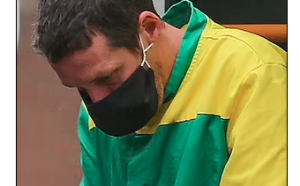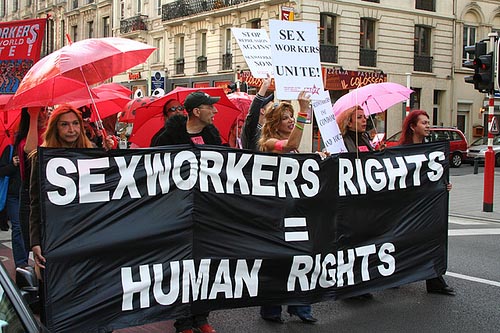by Tania Branigan
Human Rights Watch report says frequent drives against sex industry fail to curb trade and increase abuse of prostitutes.
China’s high-profile crackdowns on prostitution have made sex workers more vulnerable to abuse by police and clients while failing to curb the trade, a new report says.
Women described being assaulted by police and other security officials until they admitted to being sex workers, leading to them being fined or detained for up to two years without trial.
One told Human Rights Watch: “I was beaten until I turned black and blue, because I wouldn’t admit to prostitution.”
Another told the group: “They attached us to trees, threw freezing cold water on us, and then proceeded to beat us.”
The report, released on Tuesday, also detailed abuses including forced or coercive HIV testing and disclosure of HIV test results to third parties.
Prostitution largely disappeared in the Mao era but has flourished since China’s economic reforms began. The United Nations estimates that between 4 million and 6 million adult women are engaged in sex work, often in hotels, hair salons, karaoke bars or streets and parks.
Authorities have launched frequent drives against the sex industry, but it remains widespread and visible. While such campaigns see hundreds of women rounded up, brothels often continue to operate with little obvious difficulty.
While there have been hints of change in the government’s approach – three years ago the ministry of public security ordered an end to the public shaming of sex workers and said they should be treated more respectfully – problems remain widespread.
“The anti-prostitution drives are useless in terms of controlling the industry, but they lead to a spike in abuses,” said Nicholas Bequelin, senior Asia researcher for Human Rights Watch and one of the report’s authors.
Several interviewees said they had been assaulted by police or by auxiliary workers. Others reported police entrapping them or extorting sex.
Bequelin said that one of the problems was that fines were a major source of revenue for the police.
Women can also be sentenced to up to two years of detention without a proper trial and with no entitlement to a lawyer. Because most offenses related to sex work are administrative rather than criminal, they are dealt with by committees headed by the police rather than courts.
One worker complained that women were often beaten into confessions, adding: “If you can bear the beating, usually they’ll detain you for 24 hours and then let you go. But if you admit to prostitution when they beat you, [you might] be sent to re-education through labor for six months.”
The government has pledged to overhaul its forced labor camps but details remain unclear.
Many sex workers are sent to custody and education centers that are supposed to rehabilitate them and give them educational and health support, but “in practice … forced labor by inmates [takes] precedence over the other stated goals”, the report warns.
While abuse by police and clients is experienced by sex workers in many countries, Bequelin said the matter was made worse by the absence of legal safeguards and checks on police and the lack of rights organizations to support workers.
He added: “If you ask sex workers, client violence is the number one issue. But police violence contributes to that situation.”
One woman said she had not dared to report multiple rapes lest she was arrested for prostitution.
Another described a client kicking and beating a colleague unconscious.
“Then, he took her away in his car. We didn’t call the police because we didn’t want to encounter any trouble. I don’t know what happened to her that night, but she eventually came back to work,” she said.
The report was based on more than 140 interviews with sex workers, clients, police and other officials, academics and activists.







